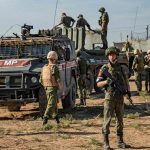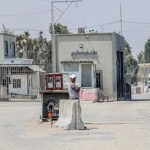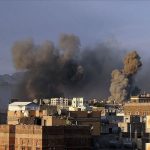Former Israeli premier Ehud Barak has expressed deep concern about the survivability of the regime in Tel Aviv, saying the historical experience suggests the entity will cease to exist before the 80th anniversary of its establishment.
Faraan: Nakba, or “catastrophe”, referring to the ethnic cleansing of more than 700,000 Palestinians and the near-total destruction of more than 500 villages, is an experience of dispossession for Palestinians.
In an interview with Hebrew-language newspaper Yedioth Ahronoth, the former Israeli military general who ended up being the prime minister, said Jews have not ruled for more than 80 years on the trot throughout the history, predicting a doom-and-gloom scenario for the incumbent regime in Tel Aviv. “Throughout the Jewish history, the Jews did not rule for more than eighty years, except in the two kingdoms of David and the Hasmonean dynasty, and in both periods, their disintegration began in the eighth decade,” Barak said.
The 80-year-old former premier hastened to add that the present Tel Aviv regime represents the third experience and is approaching the eighth decade of the entity’s existence. Barak said he harbors deep fears that the curse of the eighth decade would befall the present Israeli regime. He further noted that many world governments, including those in the United States, Italy, and Russia, have experienced the curse of the eighth decade, and the Tel Aviv regime is not an exception. The ultra-conservative former premier’s fears have found an echo in the occupied territories as well.
A recent survey of young Israeli adults found that nearly half of the population in the occupied Palestinian territories was not optimistic about the future of the illegitimate entity, while more than one-third of people were thinking about migrating for jobs and better life. The Israeli Fenima research center described its findings, which were published in the Hebrew-language Hayom newspaper last week, as “worrying”. It noted that 33% of Israeli youth were seriously considering immigration from the occupied lands, while 44% of them saw no future in the regime.
Issues such as rising living costs, precarious security, and widening social divisions are among the key reasons forcing young Israelis to mull over leaving the occupied territories. In the poll, 40% of respondents cited rising costs for such a potential decision, while 22% of those questioned blamed poor security situation. Social divisions were cited as a reason by 18% of people.
Many analysts have pointed to the theory of “Collapse from Within” regarding the future of Israel, outlining three factors of economic crisis, poor security situation, and social divisions for the imminent decline and fall of the regime. In October last year, a former high-ranking Israeli military commander said the regime troops were not prepared for a multi-front war and would most probably fail if such a confrontation breaks out, emphasizing that the Tel Aviv regime is on the verge of collapse.
Major General Yitzhak Brick said his remarks about the inherent weakness of the Israeli army and the fact that the regime was on the brink of death was not an angry outburst but incontrovertible facts that cannot be overlooked. He predicted that the Israeli regime’s next war will be on the domestic front, underscoring that the regime has not experienced such a scenario in the past.
“A new war will take us back to many years ago. The difficulties that we went through throughout previous wars will be nothing in comparison with the fallout of the future confrontation,” Brick remarked. He said thousands of missiles and rockets will be unleashed daily into the Israeli-occupied territories in the event of a new war and a high number of unmanned aerial vehicles will be flown over the land, destroying anything.
“Given the current situation, there is no going back in the next war and we must do everything we can to save ourselves. The next war would cause a damning catastrophe, and would largely destroy Israel’s infrastructure,” Brick asserted. “Why shouldn’t we set up a research committee before such a war to rectify the situation, and prevent a catastrophe from which it is impossible to escape?”










